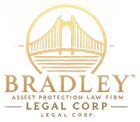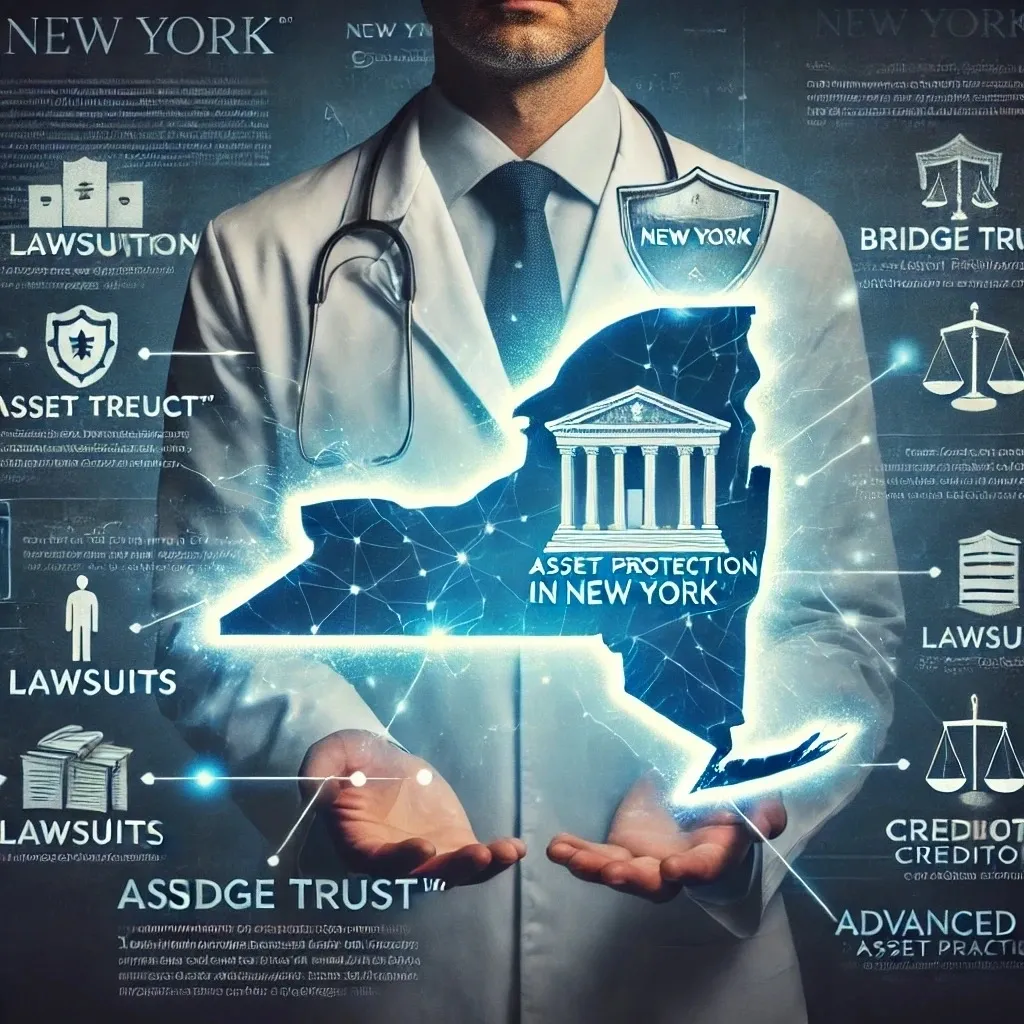How does Asset Protection work in New York?
New York is one of the most challenging states for asset protection. Like California, it lacks self-settled spendthrift trust legislation, meaning that trusts where the grantor is also a beneficiary provide little to no protection from creditors. Combined with unfavorable court rulings, New York stands out as an asset protection “unfriendly” state.
This article explores how New Yorkers can protect their assets, highlighting key case law, statutory limitations, and the critical difference between domestic irrevocable trusts and the Bridge Trust®. We’ll also follow the story of Dr. James Carter, a successful surgeon and real estate investor, to illustrate why modern asset protection strategies are essential.
Meet Dr. James Carter: A Case for Stronger Asset Protection
Dr. James Carter is a renowned surgeon in Manhattan and an avid real estate investor. Over the past decade, he has built an impressive portfolio of 12 properties across New York City, valued at over $20 million. With a busy practice and a growing real estate business, James thought his assets were well-protected through a domestic irrevocable trust he created five years ago.
However, one day, James finds himself facing a malpractice lawsuit. A patient alleges negligence during surgery, and the jury awards a staggering $10 million judgment. Simultaneously, one of James’s rental tenants sues for injuries caused by a faulty railing, potentially exposing his real estate portfolio to further liabilities.
Confident in his trust’s protections, James assumes his assets are safe. Unfortunately, the plaintiff’s attorneys quickly identify weaknesses in the structure of his domestic irrevocable trust, and a New York court pierces it, exposing his wealth to creditors.
How could this happen? Let’s explore why domestic irrevocable trusts often fail in New York and how James could have safeguarded his assets with a Bridge Trust®.
The Problem with Domestic Irrevocable Trusts in New York
New York is a creditor-friendly state, with laws and court rulings that frequently undermine the effectiveness of domestic irrevocable trusts.
1. No Self-Settled Spendthrift Trust Legislation
New York’s Estates, Powers, and Trusts Law (EPTL) § 7-3.1 explicitly states that any trust created for the benefit of the grantor is not protected from the grantor’s creditors.
• Key Statute: EPTL § 7-3.1
• What It Means: If James created a trust where he retained any benefit or access to assets, those assets remain vulnerable to creditor claims.
• Impact: Domestic irrevocable trusts cannot shield assets if the grantor is also a beneficiary.
The Bridge Trust®: A Better Solution for New Yorkers
Unlike domestic irrevocable trusts, the Bridge Trust® offers robust, modern protection tailored to overcome New York’s creditor-friendly legal environment.
1. Offshore Protection for Maximum Security
The Bridge Trust® combines the tax flexibility of a domestic trust with the unparalleled protection and strength of an offshore trust. When activated, the trust becomes what it is, a fully registered offshore Cook Island Trust, in a jurisdiction where U.S. judgments are statutorily not recognized.
• Benefit: Even if a New York court attempts to pierce the trust, the assets are safely beyond their reach.
2. Retained Control Until Necessary
With the Bridge Trust, James could remain the beneficiary and maintain access to his assets unless a legal threat arises. This flexibility ensures that he doesn’t have to permanently give up control, unlike a traditional irrevocable trust.
3. Simplified Taxation and Compliance
The Bridge Trust® operates as a grantor trust under IRS guidelines, eliminating the need for additional tax filings or complications.
4. Proven Track Record
The Bridge Trust® has been tested in over 30 years of asset protection cases, offering a level of reliability that domestic irrevocable trusts cannot match.
How James Could Have Protected His Wealth
If James had implemented a Bridge Trust®, his assets would have been fully shielded from the malpractice and tenant lawsuits. Here’s how:
1. Segregation of Real Estate Assets
• Each property would be held in its own Limited Liability Company (LLC) to isolate liabilities.
• These LLCs would then be owned by an Asset Management Limited Partnership (AMLP) to centralize control.
2. Bridge Trust® Activation
• Upon facing legal threats, the Bridge Trust® would activate by the trust protector (your attorney) declaring a state of duress and you signing the acknowledgment, moving the AMLP’s ownership offshore, making the assets inaccessible to New York creditors and judges.
3. Retention of Control
• James could maintain full access to his assets until the very last moment when the trust needed to “cross the bridge” for protection.
Why Domestic Irrevocable Trusts Fail in New York
Domestic irrevocable trusts are inherently flawed for New Yorkers due to:
1. No self-settled spendthrift protection under EPTL § 7-3.1.
2. Vulnerability to fraudulent transfer claims under the Uniform Voidable Transactions Act (UVTA).
3. Judicial discretion that prioritizes public policy over trust statutes.
4. A long history of case law piercing trusts due to excessive control or improper intent.
Key Takeaways for New Yorkers
If you live in New York and are seeking asset protection, consider the following steps:
1. Avoid Relying on Domestic Irrevocable Trusts: They provide little to no protection in creditor-friendly states like New York.
2. Use a Bridge Trust®: This hybrid solution offers unparalleled protection by combining the flexibility of domestic trusts with the strength of offshore jurisdictions.
3. Structure Real Estate Properly: Use LLCs and AMLPs to isolate and centralize control over high-liability assets like rental properties.
4. Consult an Expert: Asset protection in New York requires advanced strategies and legal expertise.
Conclusion: Modern Problems Require Proven Solutions
For high-risk individuals like Dr. James Carter, domestic irrevocable trusts are no longer a viable solution in New York’s creditor-friendly legal environment. Strategies like the Bridge Trust® provide the flexibility, security, and peace of mind needed to protect wealth in today’s litigious society.
Don’t leave your assets exposed. Contact us today at (888) 773-9399 and talk with an asset protection attorney to learn how a tailored asset protection plan can safeguard your financial future.
By: Brian T. Bradley, Esq.




